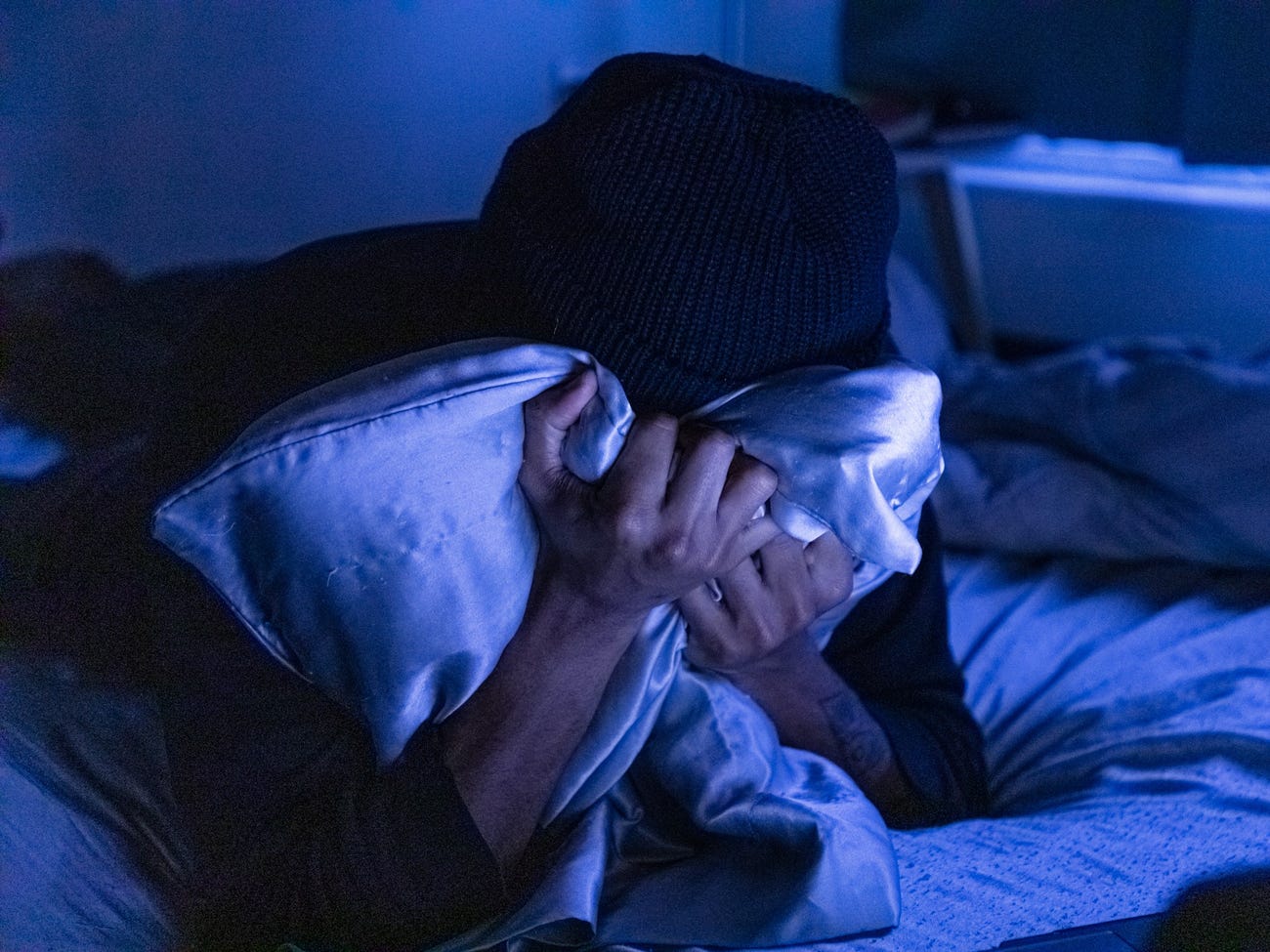A grieving mom says the isolation of coronavirus lockdown played a role in her son’s accidental overdose death

Crystal Cox/Business Insider
- 28-year-old Chandler Cook died of an accidental drug overdose on April 21.
- His mother, Michele Holbrook, said she believes pandemic isolation measures and unemployment played a role in his death.
- Holbrook said Cook became unemployed during the pandemic and lost the structured schedule that kept him away from drugs. She said being home all of the time exacerbated his depression.
- She also said substance abuse and addiction support groups should be allowed to operate in-person to help people who are struggling to feel less alone.
Since 28-year-old Chandler Cook died of an accidental drug overdose on April 21, his mother Michele Holbrook is speaking up about the alarming mental health effects of coronavirus pandemic isolation measures, especially for recovering drug addicts.
In an interview with People.com, Holbrook said Cook struggled with substance abuse since he was a teenager. First, he became addicted to the prescription drug Oxycontin after a doctor prescribed it due to a shoulder injury. Later, he started using heroin and experimented with other drugs.
Though Cook went to rehab in 2016 and stayed in a sober house in 2017 in an attempt to stay clean, Holbrook said she believes lockdown orders designed to control the pandemic worsened her son's mental health and influenced his return to drug use.
"He lost his job, his income, that stability that he had from working every day and getting up and going to a structured environment, and he was in isolation," Holbrook told People.com of the ways the pandemic negatively impacted her son's life. "Chandler had a depression that he couldn't overcome."
The pandemic has led to an uptick in anxiety and depression
Since the coronavirus pandemic ramped up in the United States in mid-March, people have stayed indoors and away from others to prevent virus spread. Nearly 39 million people have filed for unemployment and an estimated 20 million jobs were lost due to the pandemic, Insider previously reported.
These factors have contributed feelings on instability and hopelessness, and an uptick in anxiety and depression among Americans.
This month the FDA said supplies of Zoloft, an anxiety medication, are falling short due to a 12% increase in demand since last year. And according to new data from the US Census Bureau, more than one-third of Americans have shown signs of clinical anxiety and depression during the pandemic.
"It's understandable given what's happening. It would be strange if you didn't feel anxious and depressed," Maria A. Oquendo, a psychiatry professor at the University of Pennsylvania, told the Washington Post of the alarming mental-health trend.
Though mental health resources like telemedicine therapy may help some people cope with pandemic-induced anxiety and depression, Holbrook said those who also have histories of drug abuse need additional support during this time.
Holbrook wants in-person substance abuse support groups to be allowed during the pandemic
Holbrook said people don't take drug addiction seriously enough, and that Cook's in-person narcotics anonymous meetings offered him invaluable help.
"People don't think it's a disease, but I know firsthand from seeing Chandler that it is. It's a disease, just like my disease," she said. "If they don't go to the doctor that they need, whether it's going to going to see a counselor or going to their Alcoholics Anonymous or Narcotics Anonymous meetings, then they are going to die from this disease."
But the pandemic meant those in-person meetings were indefinitely cancelled, and Holbrook said she thinks that's a huge problem.
"Yes, you can do them by Zoom, but how many of these individuals do you think are going to sit and do this or have access to a computer or internet?" Holbrook said. "To me, there's ways to social distance. You can sit six feet apart and wear a mask and sit outside. Put more programs in place where they can go and be part of something that they really need."
She also said insurance companies need to step up and offer better rehab program coverage
In addition support groups, Holbrook called on insurance companies to cover long-term rehab programs for addicts. She said Cook's insurance only covered one month of rehab, but believes he could have benefited from more.
"That's not enough time at all," Holbrook said. "These individuals need at least a good six months to a year to be clean and sober and to be in a real rehabilitation facility to start that process."
Lastly, Holbrook said friends and family shouldn't be shy about getting loved ones with substance abuse problems help, or giving them tough love.
"Get in their face and find out what they need. I firmly believe in tough love and I've done the tough love — I've cried and I've screamed. You name it and I've done it," Holbrook said. "Chandler was an amazing young man, but he couldn't fight that fight on his own, unfortunately."
- Read more:
If you or someone you know is struggling with depression or has had thoughts of harming themselves or taking their own life, get help. The National Suicide Prevention Lifeline (1-800-273-8255) provides 24/7, free, confidential support for people in distress, as well as best practices for professionals and resources to aid in prevention and crisis situations.
 Pathways Drug Rehabilitation Luxury Addiction Treatment & Detox Center
Pathways Drug Rehabilitation Luxury Addiction Treatment & Detox Center


